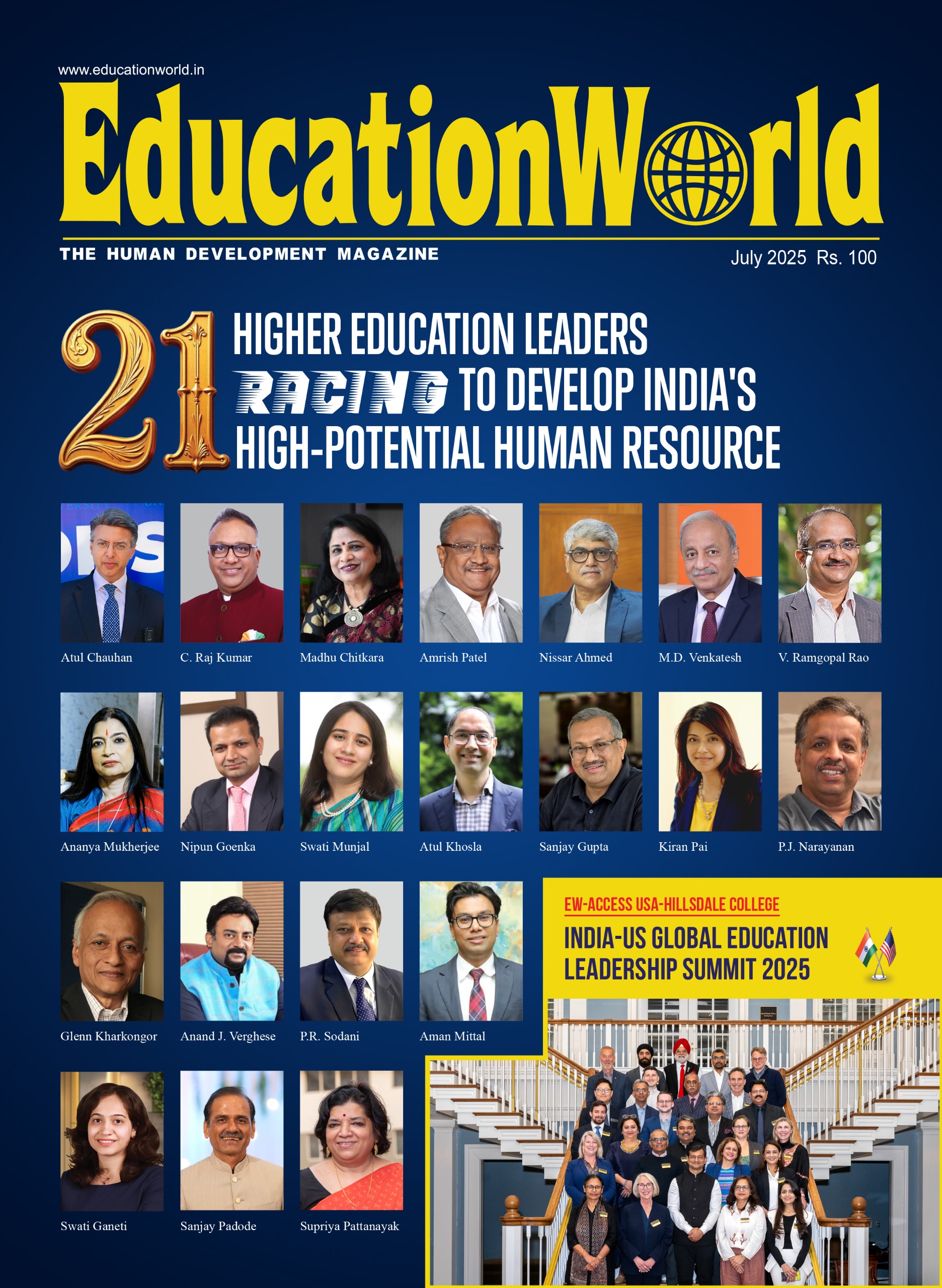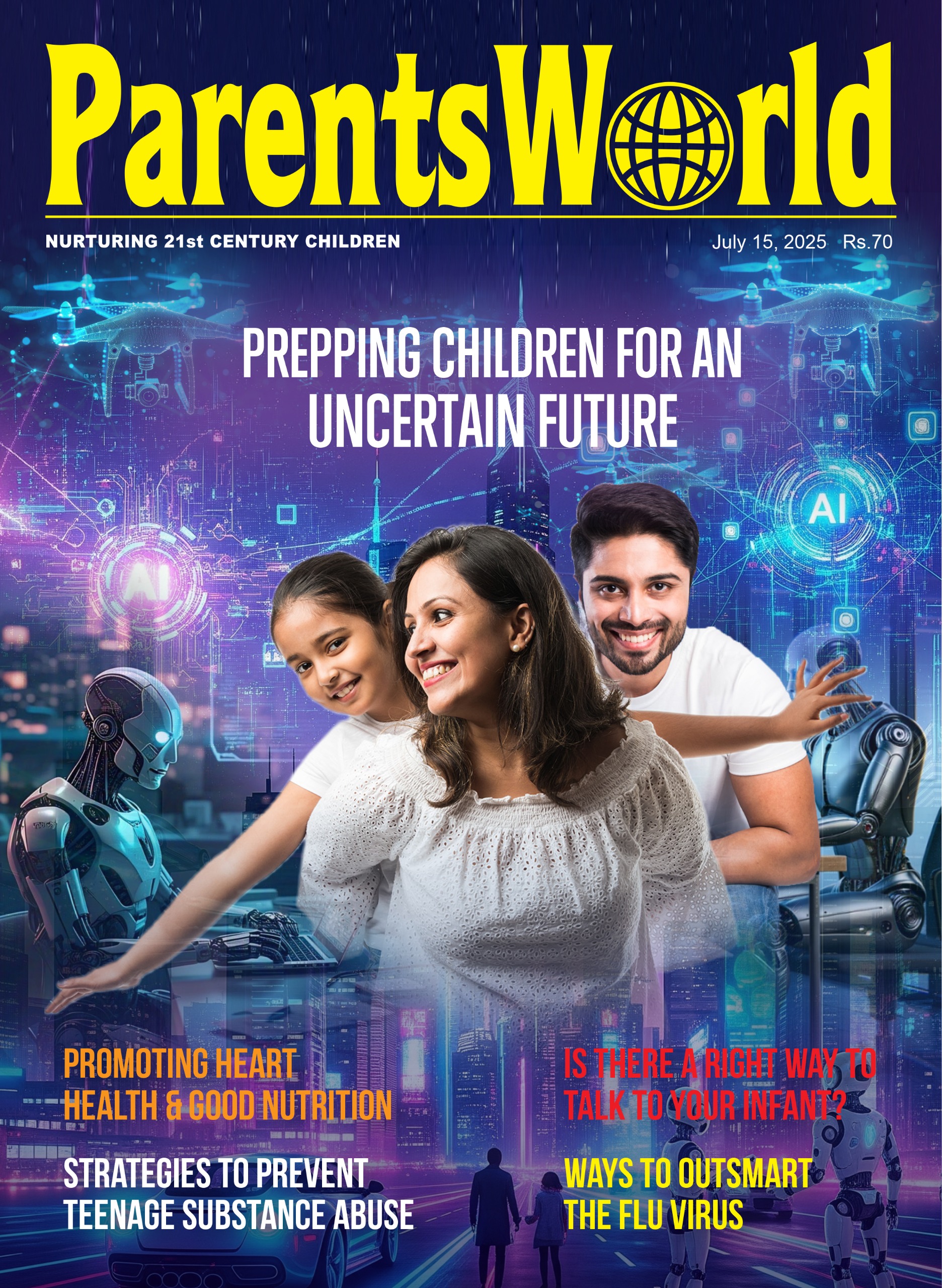This unprecedented three-day summit hosted by the top-ranked Hillsdale College, Michigan (estb. 1844), attracted the participation of 40 delegates including American higher ed academics and a 21-strong delegation of leaders of India’s premier primary-secondary schools – Summiya Yasmeen
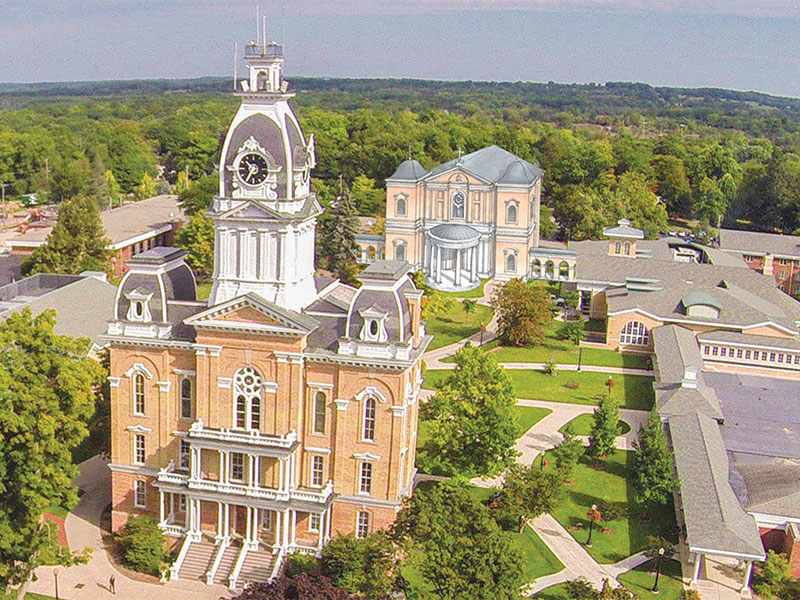
Hillsdale College: inspirational environment
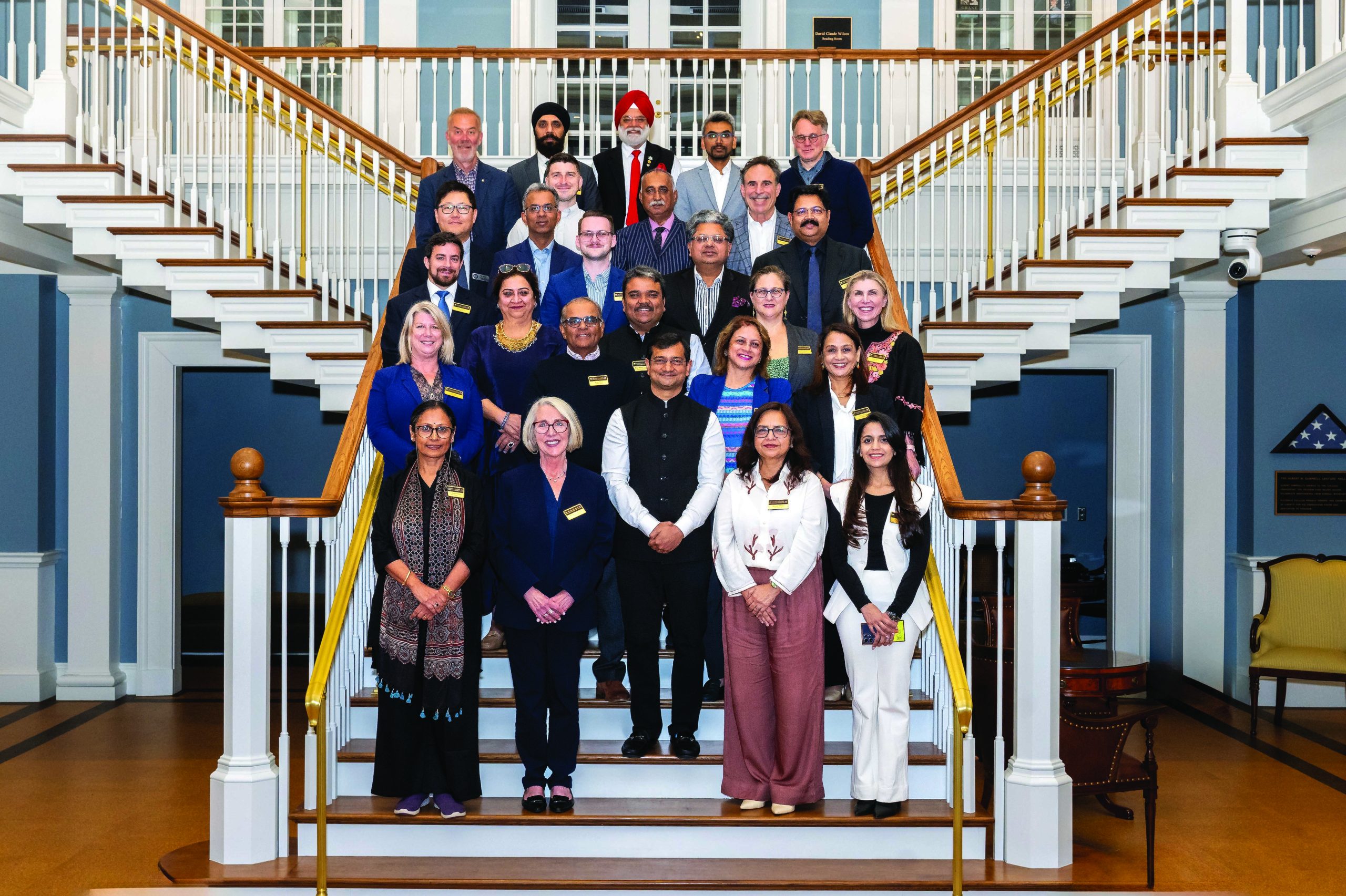
Leadership Summit delegates & faculty
Staged against the backdrop of the Trump administration announcing measures to tighten visa regulations for international students, the inaugural India-USA Global Education Leadership Summit 2025 held in Michigan between May 22-24 reaffirmed the strong, enduring education ties between the world’s two most populous democracies.
Ideated and enabled by Access USA (estb.2022), a Michigan-based education consultancy that facilitates admission of international students into US universities and EducationWorld (estb.1999), this unprecedented summit hosted by the top-ranked Hillsdale College, Michigan (estb.1844), attracted the participation of over 40 delegates, including American higher ed academics and a 21-strong delegation of leaders from India’s premier primary-secondary schools.
Over three days, faculty drawn from America’s best undergrad colleges/universities, school promoters and principals from India discussed and debated best education administrative and classroom practices in the inspirational green campus environment of Hillsdale College, ranked among America’s Top 50 liberal arts colleges by US News & World Report and in the Platinum category of the EW-Launchpad Rankings of America’s Best Universities.
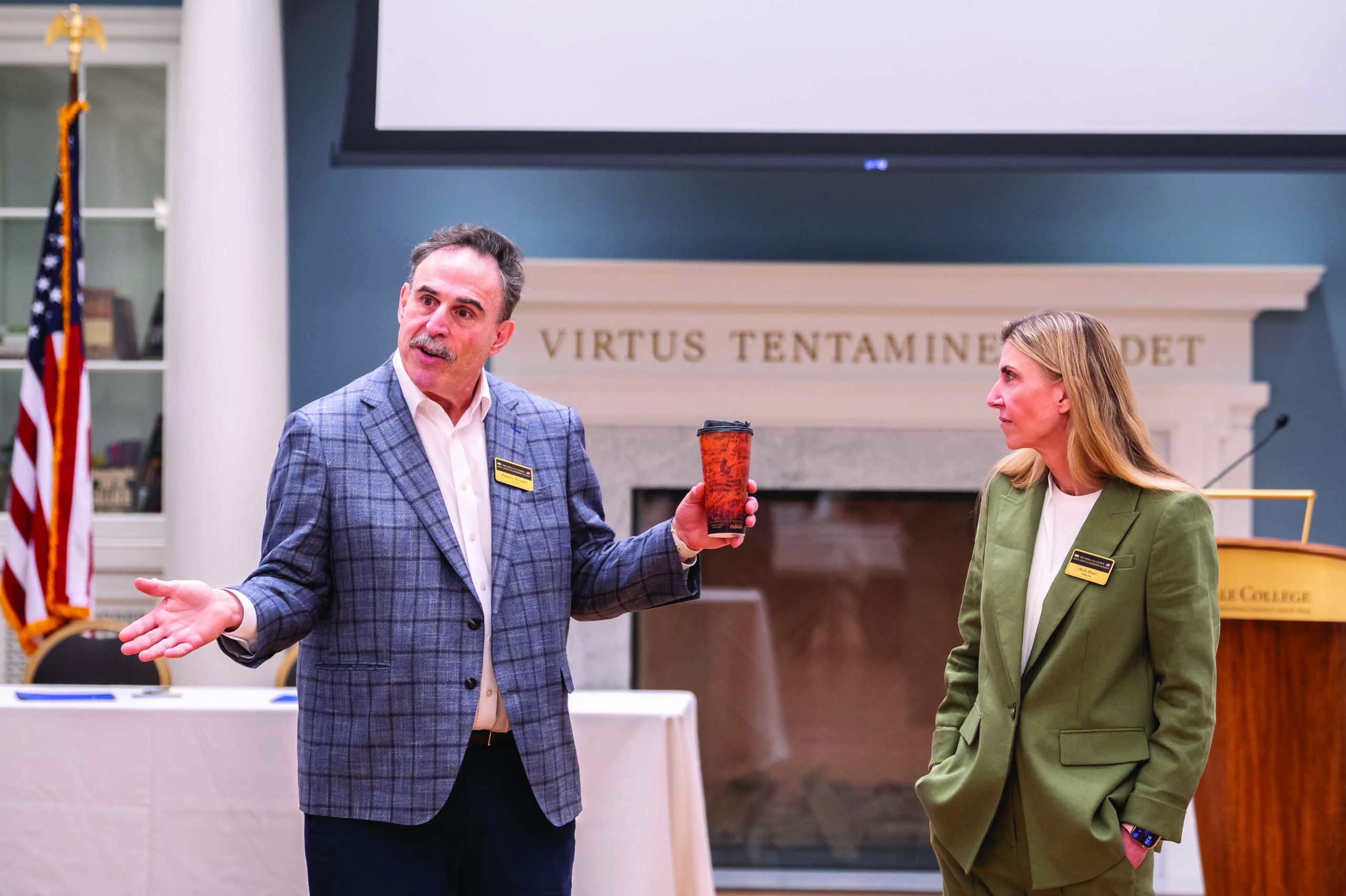
Access USA’s Ravaglia (left) & Bauer: dual priorities
“India and the US have deep ties in education — the largest cohort of international students in America is from India — and strong people-to-people connections with the Indian diaspora significantly represented in government and academia. The objective of this first India-USA Global Education Leadership Summit is to deepen education exchange and cooperation between the world’s largest democracies in education innovation and excellence and in particular, provide a forum for education leaders from India and the US to discuss ways and means to prepare Indian school-leavers for admission into America’s best universities, as also to prepare them for career success after admission. We hope this annual event — the next summit is scheduled for June 2026 — is the start of an Indo-US dialogue to reset the global educational agenda for student success in university, workplaces and the digital economy,” says Raymond Ravaglia, a Stanford University alum, founder of Stanford’s Pre-Collegiate Program and the globally acclaimed Stanford University Online High School, and co-founder of Access USA.
Promoted in 2022 by Ravaglia and Sheila Bauer, an alum of Cornell University, Access USA has signed up 40 Associate Schools in India to offer their secondary students (class IX-XII) online preparatory courses of partner American universities. Students who complete the Access USA Diploma are guaranteed admission into the second-year undergrad programme of US partner universities, saving a year of the standard four-year undergrad degree programme.
Comments Sheila Bauer, CEO of Access USA: “The summit’s six workshops were grouped under two broad themes: ‘Developing Teaching and Learning Excellence’ and ‘Avoiding Winning Academically while Losing at College and Life’. These two themes reflect the dual priorities of academic excellence and career readiness — how school leaders can improve teaching-learning practices and prepare students for success beyond the classroom — through experiential education, resilience-building, and values-based learning. Moreover, the workshops were structured to ensure active learning with all speaker presentations followed by discussions featuring selected delegates,” says Bauer, also a board member of the Michigan Colleges Alliance, a consortium of 14 American colleges/universities.
Welcoming the delegates in a video broadcast, Dilip Thakore, Publisher-Editor of EducationWorld, said: “America is the world’s oldest democracy and India the world’s most populous democracy. We are natural partners and allies and it’s fitting that the first unprecedented India-USA Global Education Leadership Summit is being held in the US. Access USA and Hillsdale College have taken great pains to shortlist excellent speakers and faculty drawn from across America. I am sure all of you will come back enriched by the insights and perspectives learned at the summit, and will apply this knowledge to make your schools model institutions for the rest of India.”
The summit workshops were interspersed with award ceremonies during which 21 leaders from India’s top-ranked schools were conferred the Hillsdale College-EW-Access USA Global Education Leadership Award for sustained commitment to education innovation, excellence and internationalism (see box p.83).
May 22, Day 1. Delegates registered for the India-USA Global Education Leadership Summit were welcomed by Access USA’s Ravaglia and Bhavin Shah, CEO of EducationWorld, and apprised of the agenda of the three-day summit. After lunch, they were taken on a tour of the expansive 400-acre campus of Hillsdale College. Set within the eponymous township (pop. 8,000), an hour’s drive from Detroit, America’s automobiles manufacturing hub, Hillsdale College boasts superb academic, sports and recreational facilities set amidst landscaped gardens and green woods.
Specially mapped by host Dr. Larry Arnn, President of Hillsdale College, the campus tour included visits to the Central Hall, an iconic bell towered Gothic building that serves as the college’s admin headquarters; the neoclassical Christ Chapel; Mossey Library which houses over 250,000 printed volumes; Slayton Arboretum, a 14 acre botanical garden featuring ponds, rock gardens, bridges, waterfalls, and a rustic amphitheatre; Liberty Walk, a stately quadrangle lined with bronze statues of icons of Anglo-American history including George Washington, Abraham Lincoln, Winston Churchill, Margaret Thatcher, and Ronald Reagan. Currently, Hillsdale College has 1,562 undergraduate and 59 graduate students mentored by 152 full-time faculty on its musters and operates “independently of any government funding”.
The campus tour was followed by early dinner and cocktails hosted by Dr. Arnn.
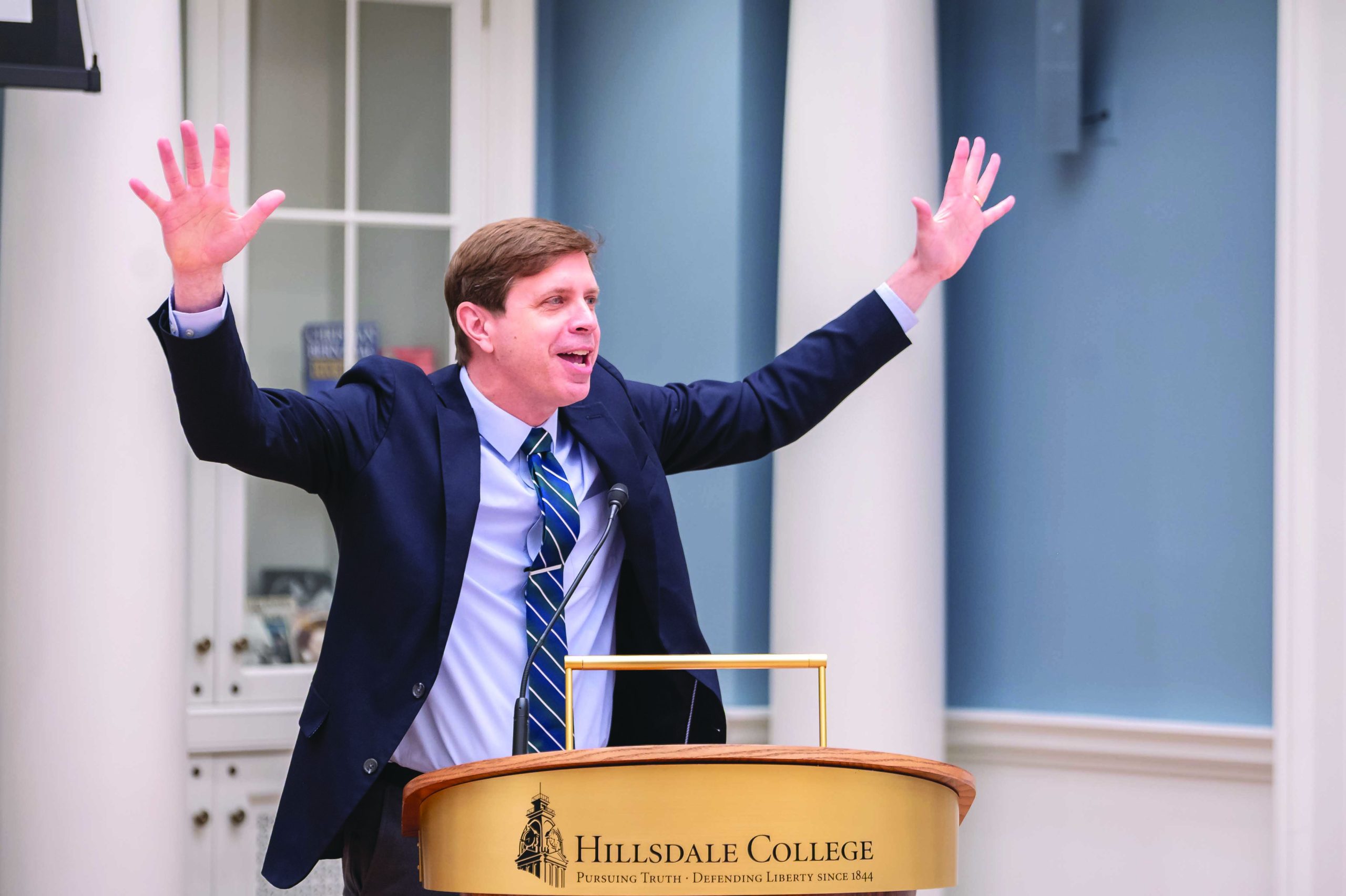
Dr. Coupland: classical core curriculum
May 23, Day 2. The day began early with a breakfast meeting, during which Access USA’s Ravaglia and Bauer formally welcomed delegates and reiterated the summit’s agenda and goals. The first workshop of the leadership summit, ‘Measuring Effectiveness & Developing Excellence’, was conducted by Dr. Daniel Coupland, Dean of the Diana Davis Spencer Graduate School of Classical Education and Chairman and Professor of the Education Department at Hillsdale College.
During his 50-minute address, Dr. Coupland, an alum of Oakland and Michigan state universities, defined high-quality schools as institutions with excellent teachers. Critiquing prevalent teacher preparation models in the US as overly standardised, academically weak, and ideology driven, Dr. Coupland advocated teacher development programs rooted in strong subject knowledge, exposure to master teachers, and deep engagement with education philosophy. He called for teacher development programmes that prioritise intellectual depth, moral character, and grounded in “classical education” principles. It’s pertinent to note, he added, that Hillsdale College defines itself as a “classical liberal arts college” in which all undergrads are obliged to “study a classical liberal arts core curriculum in addition to their major field of study”.
The presentation was followed by a 30-minute discussion among delegates with Rupa Chakravarty, director of the CBSE-affiliated Suncity School, Gurugram and Vijayalakshmi, principal of Ugdam School, Ahmedabad, comparing and contrasting teacher development systems in India with the model advocated by Dr. Coupland.
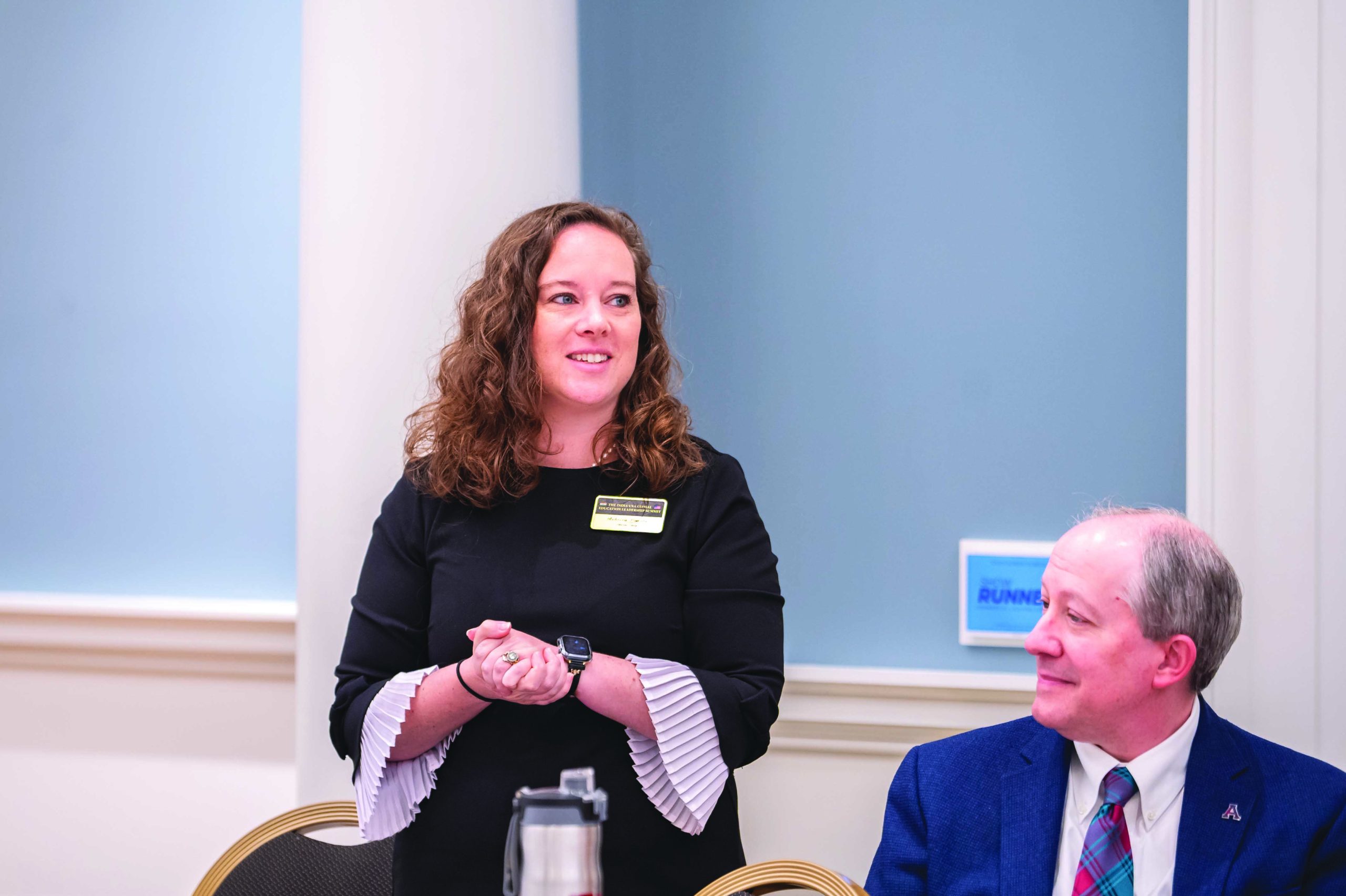
Lincoln: sharpened focus suggestions
After a brief tea break, the second workshop of the leadership summit was led by Rebecca Lincoln, Director of teacher support at Hillsdale College, which runs a widely acclaimed K-12 outreach programme for teacher development. Under this programme, Hillsdale College provides its teacher training curricula to affiliated schools based on its classical education philosophy.
In her engaging address titled ‘Creating Focus and Overcoming Distraction’, Lincoln reasserted Hillsdale College’s philosophy of classical education — “the cultivation of wisdom and virtue through the study of the liberal arts and the great books” — and recounted ways and means by which the Hillsdale curriculum has ameliorated the growing problem of student distraction and attention deficit in the digital age.
“Rather than relying on technology to entertain students, the Hillsdale model emphasises rich content, strong teacher leadership, and student accountability. In classical curriculum classrooms, focus is sharpened through engaging material, direct instruction, and discussion-based learning, supported by clear routines like note-taking and annotation. Technology used purposefully to visualise ideas plays a supporting role in developing the teacher-student relationship,” said Lincoln.
Ms. Lincoln’s insights-rich address provoked a lively debate on teacher development theory and static curricula, and the growing problem of digital screen usage by children in India. Discussions on prevalent practices in Indian K-12 education were led by Dr. Gunmeet Bindra, Principal of Daly College, Indore; Manjot Dhillon, Director of Invictus International School, Amritsar and Neeta Raina, Director, New Initiatives and Strategic Planning of The Millennium Schools.
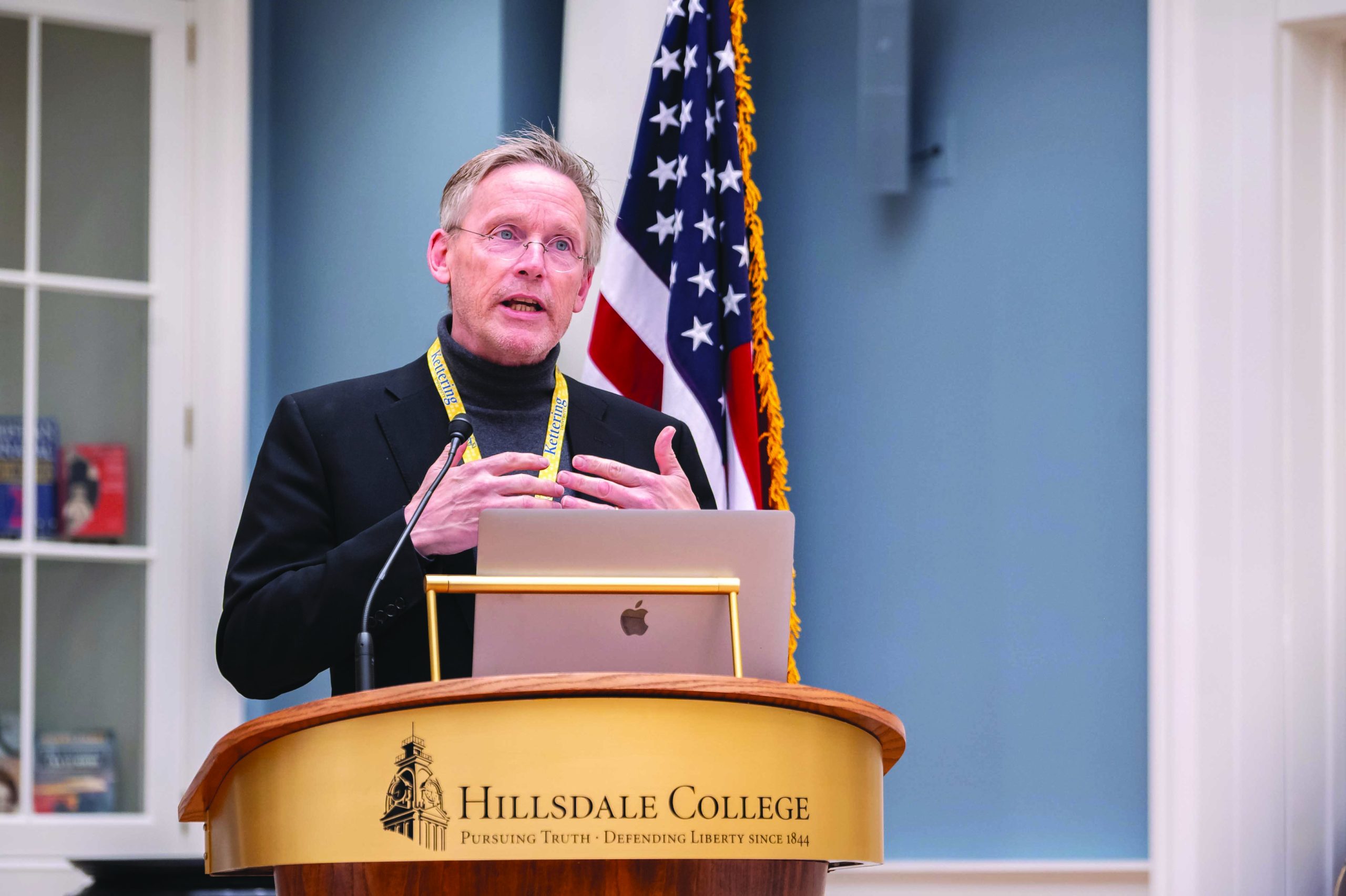
Dr. McMahan: Co-op Program outline
After lunch, delegates were treated to an absorbing 90-minute workshop on ‘The Importance of Experience in Education’ featuring three distinguished American academics — Dr. Robert McMahan, President, Kettering University, ranked in the premier Diamond category of the inaugural EW-Launchpad America’s Best Universities Rankings 2025 (see https://www.educationworld.in/ew-america-best-universities-rankings/); Dr. Sean Burke, Provost, Alma College, ranked among America’s Top 120 liberal arts colleges by Forbes, and Dr. Dale Matcheck, David E. Fry, Professor of Economics of Northwood University, whose online programmes are ranked among the national Top 100 by the US News & World Report.
An alum of Dartmouth College and Duke University, Dr. McMahan outlined Kettering University’s widely acclaimed Cooperative Education (Co-op) Program that integrates classroom knowledge with real-world applications. “In Kettering, students alternate between rigorous academic study and full-time, paid industry placements throughout their undergraduate years. The outcome is graduates equipped with strong academic foundation and substantial professional experience,” said McMahan, who added that the Kettering Co-op Program enables undergrad students to learn through direct engagement with cutting-edge industry practice.
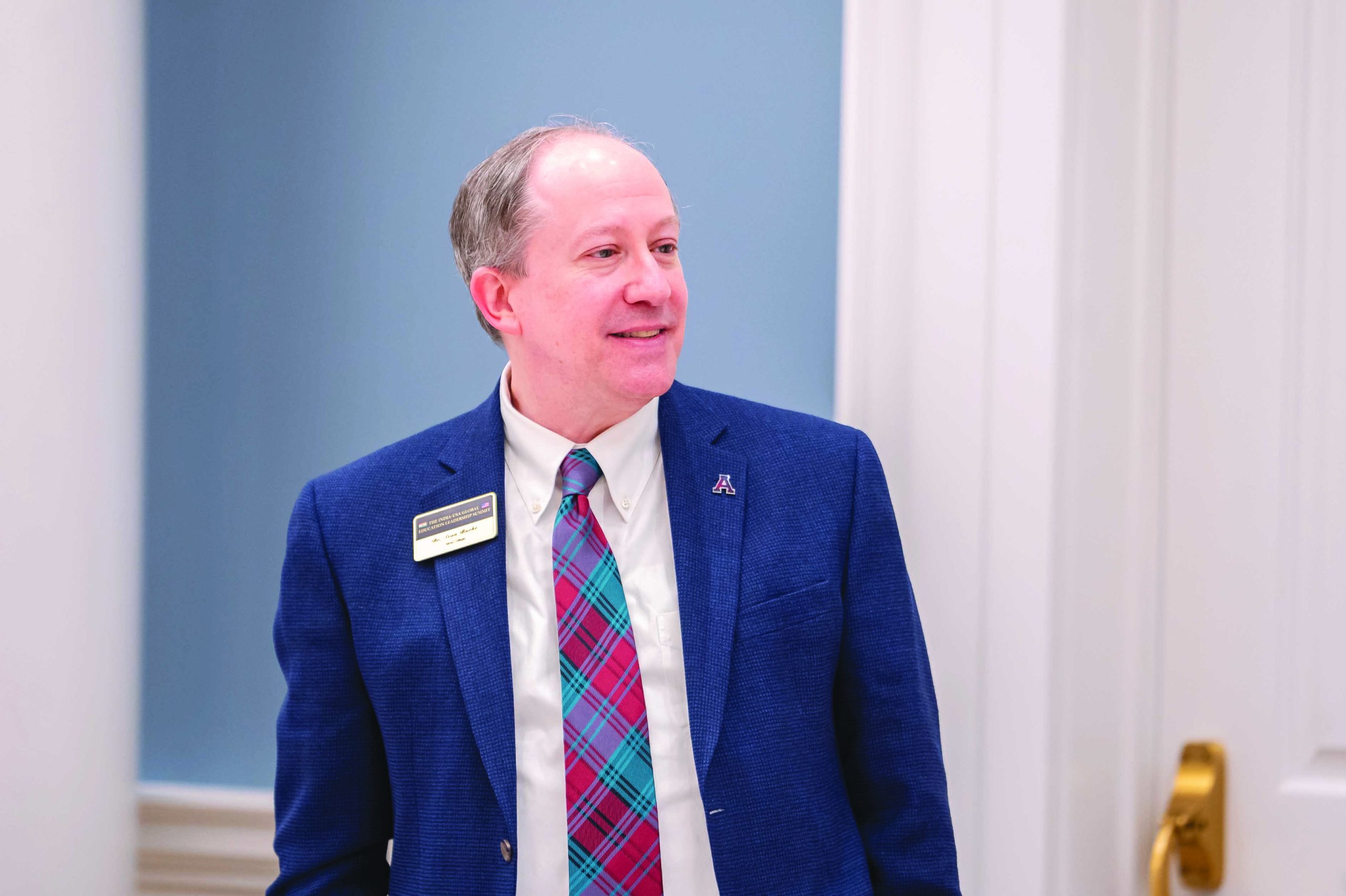
Dr. Burke: P-Global Program outcomes
In his address, Dr. Burke outlined Alma College’s P-Global Program that embeds global experiential learning into liberal arts education. “This program provides students with structured opportunities for international travel, cross-cultural immersion, and field-based research. Our learning is that these experiences arouse students’ intellectual curiosity, global awareness, and personal growth, stimulating their adaptability and other globally applicable life skills in an incrementally interconnected world,” said Burke, a theology postgraduate of Lutheran Theological Seminary.
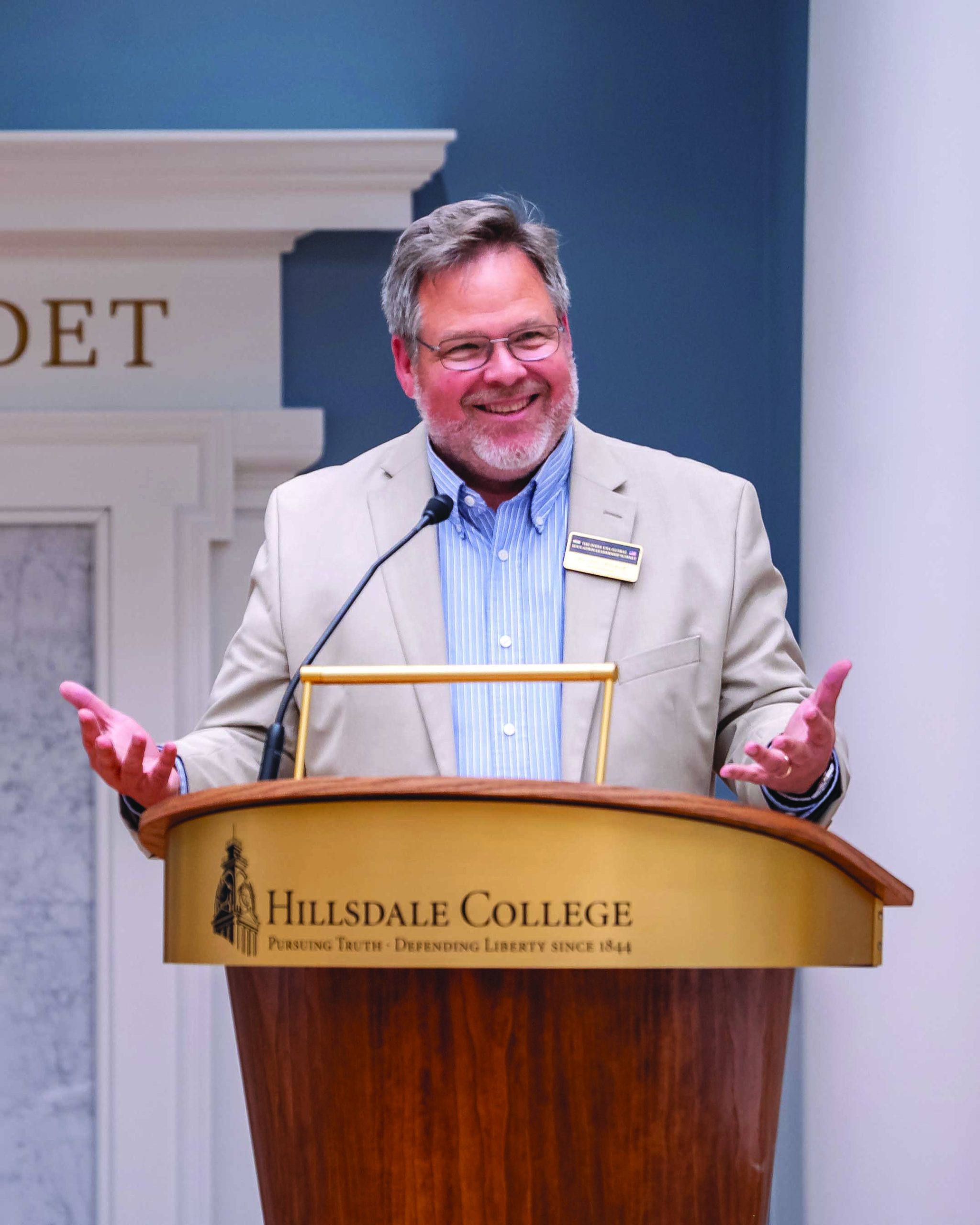
Dr. Matcheck: work experience pedagogy
In the last segment of this post-lunch workshop, Dr. Matcheck presented the distinctive experiential learning model of Northwood University — founded in 1959 by two young entrepreneurs, Dr. Arthur E. Turner and Dr. R. Gary Stauffer, to provide business education grounded in workplace experience, private enterprise, and ethical capitalism. “Rooted in our heritage of founder-led innovation, in Northwood we embed real-world entrepreneurial projects into our curricula, encouraging students to think independently and avail opportunities to solve problems creatively. Our pedagogies and curricula are focused on business simulations, startups, and mentorship by successful entrepreneurs to equip our graduates to thrive in competitive, rapidly evolving industries,” said Matcheck, an economics graduate of Michigan State and Cornell universities.
This 90-minute intensive session was followed by a two-hour open window for delegates to engage in one-on-one discussions, networking and explore collaboration possibilities.
The day ended with a typically early (6.30 pm) American dinner hosted by Dr. Larry Arnn, President of Hillsdale College. An alum of Arkansas State University, London School of Economics and Oxford University, former Director of Research to the late Sir Martin Gilbert, who has written the eight-volume official biography of the legendary British Prime Minister Winston Churchill (1874-1965), Dr. Arnn is a globally acclaimed historian. After he moved from Britain to the US, Dr. Arnn served as Director of the Claremont Institute, California, an American think-tank prior to his appointment as President of Hillsdale College in 2000.
In his engaging dinner address Dr. Arnn recounted the history of Hillsdale College (estb. 1844) as one of the first higher ed institutions to admit women and black students, and elaborated his mission to “preserve Hillsdale’s liberal traditions grounded in timeless and eternal values”. “It’s the duty of democratic nations to uphold these values. America and India, as democratic nations, need to deepen their cooperation and spur each other on towards a brighter future,” said Arnn.
An influential grandee of the Republican Party, Dr. Arnn didn’t side-step Indian fears about the Trump administration’s new visa regulations to discourage foreign students from enrolling in American universities. “I don’t think President Trump intends to reduce the number of international students coming to our country. The intention is to filter out student agitators likely to disrupt campuses and communities where they study and also filter out students serving as intelligence agents of hostile powers. President Trump wants to disqualify these elements, which I believe he should. I don’t expect these regulations to affect the vast majority of bona fide students coming to study in America,” said Arnn, who described the inaugural EW-Access USA leadership summit as “a joy to host”.
May 24, Day 3. The first workshop of Day 3 was conducted by Dr. David Diener, Assistant Professor of Education at Hillsdale College. In a 40-minute thought-provoking opening address titled ‘The Value and Purpose of Education’, Dr. Diener made a compelling case for reviving “teleological understanding” grounded in the cultivation of virtue as the ultimate aim of education. Drawing from the works of a wide range of classical and modern thinkers, including Aristotle, Plato, Maritain, and Martin Luther King Jr, Dr. Diener lamented that contemporary education has lost its moral and philosophical compass because of prioritising utility and technique over purpose and character. He called upon American and Indian educators to revive “classical education, rooted in the liberal arts to restore education’s true end: the formation of wise, virtuous, and free human beings”.
Dr. Diener’s stimulating address provoked spirited response from primary-secondary education leaders struggling to reconcile the contradictions of India’s National Education Policy (NEP) 2020 which has set out lofty goals — universalising pre-primary and primary education; introducing vocational and life skills in secondary and higher secondary education, and raising GER in higher education from the current 28 percent to 50 percent by 2030. Among the Indian delegates who contributed insightful comments and observations were Capt. A.J. Singh, Director of the top-ranked Pinegrove School, Dharampur (Himachal Pradesh); Mayskar Deo Singh, Founder-Director of the innovative Yashmay World School, Gonda (Uttar Pradesh); Kush Dinesh Sakaria, Trustee of the culturally grounded Shreevallabh Ashram Schools, Gujarat and Dr. Arunabh Singh, Co-Founder of the revolutionary Healthy Planet Pre-primary Schools in Ghaziabad and Noida, and Founder-Director of Ghaziabad’s #1 ranked Nehru World School.
The second workshop of Day 3 featured a presentation on the subject ‘Identifying and Documenting Aptitudes and Abilities’ by a panel of new-age educators comprising Michael Weiler, co-founder of Argus.AI, a California-based AI-driven edtech company; Ayush Bansal, co-founder of IDREAMCAREER, a Delhi-based students’ career advisory firm; Manoj Kutty, founder and CEO of Greenlight Credentials, a credential and certification cloud-storage firm, and Mukesh Sharma, founder of ItsCredible, a Noida-based blockchain technology company specialising in verifying learners’ credentials.
This panel of highly knowledgeable ICT business professionals explained how breakthrough AI technologies are identifying student aptitudes way better than traditional assessments; revolutionising career counseling and preparing students for job interviews and business workplaces. They also outlined newly emergent technologies for certification, verification and cloud storage of academic transcripts, skill badges and certifications in electronically verifiable and portable systems.
The last workshop of the three-day India-USA Global Education Leadership Summit 2025 was led by Dr. Gretchen Frickx, Senior Director, International Student Success and Global Partnership Management at DePaul University, ranked among America’s Top 20 for business programmes by Princeton Review, together with Dr. Connie Horton, Vice President for Student Affairs, Pepperdine University, ranked among America’s Top 100 universities by US News & World Report.
The speakers informed visiting school leaders from India about ways and means through which education institutions in America are ‘Building on Success and Cultivating Wellness and Resilience’ in student communities.
In an absorbing presentation Dr. Frickx explained the importance of career readiness. Drawing on definitions of the National Association of Colleges and Employers, she guided delegates through focus and reflection exercises such as Compass Point Inventory to identify individuals’ work style preferences and life skill gaps. She highlighted DePaul University’s innovations — integration of academic programs, organisation development, team building skills, and community engagement for developing students’ leadership skills and employability.
Following this presentation absorbed in rapt silence by visiting delegates, Pepperdine University’s Dr. Horton presented the RISE (Resilience-Informed Skills Education) program to Indian school leaders. This program integrates well-established psychological principles and practical skill-building activities to empower students to manage stress, overcome setbacks, and enhance emotional wellness.
These concluding life skills development programs which are the flavor of the season in the US and the West but a grey area in India, were appreciated with prolonged applause and verbally expressed encomiums.
Delivering the vote of thanks, Bhavin Shah, CEO of EducationWorld, thanked the visiting school leaders for attending the summit despite the outbreak of the Indo-Pak border conflict which coincided with the leadership summit. Simultaneously, he thanked Dr. Arnn and Hillsdale College for hosting the summit and Access USA for putting together the carefully curated workshops conducted by distinguished academics.
“The inaugural India-USA Global Education Leadership Summit 2025 has been a notable success. School leaders from India got a unique opportunity to network and learn about newly emergent best practices from renowned American education leaders. Delegates also got an opportunity to experience the world-class campus and rich academic environment of Hillsdale College. This summit marks the shared commitment of our great democracies to cooperate in education beyond academics and prepare students not just for careers, but to live meaningful lives,” said Shah.














